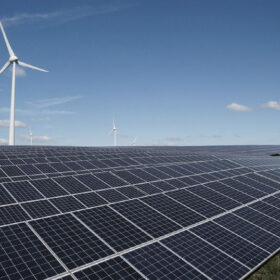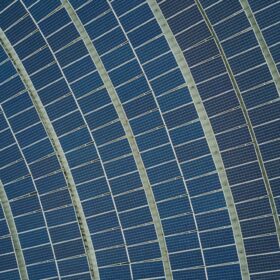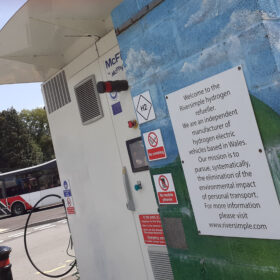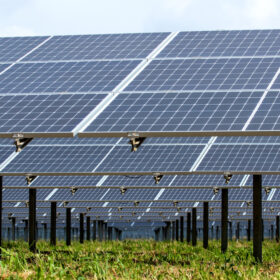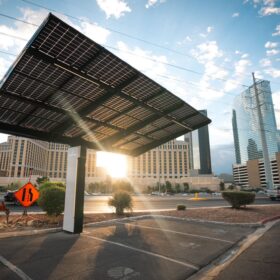UK records 1 GW of new solar in 12 months as pipeline swells
Government data records 17.2 GW of deployed solar capacity in the United Kingdom at the end of October 2024. Planning applications for three plants with combined capacity exceeding 1.8 GW submitted in November 2024, suggesting potential for greater additions in the future.
UK grid operator calls for 47 GW of solar by 2030, deployed at 4.6 GW per year
The UK National Energy System Operator (NESO) has published its Clean Power 2030 Advice to Government, setting out pathways to decarbonize the power system of Great Britain by 2030. It calls for a threefold increase in the pace of deployment to hit clean energy targets.
Renewables must triple by 2030 to hit net-zero by 2050, says BloombergNEF
BloombergNEF says in a new report that solar and wind must drive most emissions cuts before 2030 to stay on track for net-zero by 2050. Its net-zero scenario targets a combined solar and wind capacity of 31 TW by 2050.
When nano- meets climate technology
The use of metal-organic frameworks (MOFs) to create nanoscale crystal structures to attract hydrogen molecules could drastically improve the energy efficiency of storing and transporting the energy carrier.
How can policy help Portugal decarbonize?
With ambitious decarbonization targets and a favourable regulatory landscape, Portugal is an appealing market for renewable energy developers and producers. Like other European markets, however, Portugal’s clean energy industry faces challenges related to permitting, grid connection, and the availability of remuneration schemes – hurdles which threaten to slow the country’s energy transition.
Why the EU should avoid PV protectionism
Rather than pondering the introduction of trade measures against solar imports, Europe should be pragmatic about its short-term reliance on Asian panels while moving now to nurture and incentivize a domestic supply chain of the future.
‘UK solar will forge ahead no matter who is in government’
With United Kingdom Prime Minister Rishi Sunak appearing to have decided green policy, or rather, anti-green policy should be used to rally voters to his party’s bid for re-election this year – and with the opposition Labour party vacillating over a promise to spend £28 billion ($35 billion) per year on green investment – Adam Swarbrick, of RWE Renewables UK, gives an update on the prospects for United Kingdom solar.
Solar canopies as a central pillar of IRA-driven energy transition
With so much of the space in United States cities allocated for parking, the dual pronged approach of the Inflation Reduction Act (IRA) – production tax credits to drive investment in domestic manufacturing and investment tax credits to attract consumer-side investment – means solar canopies can make a huge contribution to the net zero drive.
Weekend Read: Famine to feast – China’s solar market in 2023
China’s solar industry rebounded in 2023 after years of pandemic-related sluggishness. As the year draws to a close, pv magazine looks back at key highlights of 2023 and considers the prospects for 2024.
The overproduction conundrum
Solar manufacturing capacity has been ramping up so quickly that even impressive installation growth cannot keep pace. Molly Morgan, senior research analyst at UK-based research firm Exawatt, explores the relationship between PV supply and demand and assesses the likelihood of overproduction.

